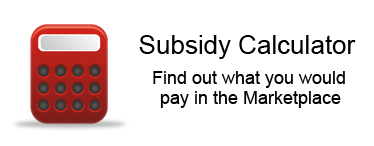Although there was some speculation that the Individual Mandate could be delayed if certain forces on Capitol Hill pushed hard enough, the Administration made it quite clear last week that the Individual Mandate is moving forward as scheduled.
The Affordable Care Act (ACA) requires individuals to share responsibility with employers and insurance carriers to improve the availability, quality, and affordability of health insurance coverage. The Individual Mandate ensures that individuals do not wait until they are sick to purchase insurance, by requiring individuals to purchase insurance when they are well. Final regulations issued by the IRS on August 27th confirm that the Individual Mandate will begin in 2014.
Starting in 2014, every individual is required to have basic health insurance coverage (aka minimum essential coverage or MEC), qualify for an exemption, or make a shared responsibility payment when filing a federal income tax return. Coverage that satisfies the MEC requirement includes employer-sponsored coverage (including COBRA coverage and retiree coverage), coverage purchased in the individual market, Medicare Part A, Medicaid, Children’s Health Insurance Program (CHIP), certain types of Veterans health coverage, and TRICARE. Vision and dental care, workers’ compensation, or coverage only for a specific disease or condition do not satsify the MEC requirement.
Starting in early 2015, individuals filing a tax return for 2014 will indicate which members of their family (including themselves) had insurance coverage. For each family member who did not have coverage, the taxpayer will owe a shared responsibility payment. The shared responsibility payment in 2014 is 95$ per individual (1/2 for individuals under age 18) or 1% of household income, whichever is greater.
Earlier this year, HHS published final rules on exemptions from the shared responsibility payment. The final rules confirm nine categories of exemptions. Individuals can apply through the Marketplace for a religious conscience exemption or a hardship exemption. The hardship exemption is available for individuals who would be eligible for Medicaid but for a state’s choice not to expand Medicaid eligibility. In additional, the hardship exemption is available on a case-by-case basis for individuals who face other unexpected personal or financial circumstances that prevent them from obtaining coverage.
Exemptions are also available through the IRS (i.e. through the tax return filing process) for individuals who are not lawfully present, taxpayers with household income below the filing threshold, individuals who cannot afford coverage, and individuals with short (less than three months) gaps in coverage. The final three exemption categories — for members of a health care sharing ministry, individuals who are incarcerated and members of Indian tribes — are available through either the Marketplace or the IRS tax return filing process.
A note on partial-month coverage: The IRS final regulations clarify how partial months of coverage or exemption are treated. An individual is treated as having coverage for an entire month so long as he or she has coverage for any one day of that month. Similarly, an individual who is eligible for an exemption for any one day of a month is treated as exempt for the entire month.
A note about non-calendar year employer-sponsored plans: Generally, employer-sponsored plans do not permit employees to enroll in the plan after the beginning of a plan year unless certain triggering events occur. In order to avoid paying the Indivdual Shared Responsibility Payment for lack of coverage, employees eligible to enroll in non-calendar employer-sponsored plans would need to enroll in coverage in 2013, when the individual shared responsibility provision does not yet apply. Enrolling in the plan in in 2013 would provide the employee with coverage for the plan months in 2014 when the individual shared responsibility provision applies. Earlier this year, the IRS issued Notice 2013-42, providing transition relief for employees in this position. The transition relief allows an employee, or an individual with a relationship to the employee, who is eligible to enroll in a non-calendar year employer-sponsored plan with a plan year beginning in 2013 and ending in 2014, exemption from the shared responsibility payment until the end of the 2013-2014 plan year. The result is that employees and dependents who choose to wait until the 2014-2015 plan year to enroll in coverage will not be subject to the shared responsibility provision for the months in 2014 that are part of the 2013-2014 plan year.
Sources: The final IRS regulations published last week (primarily adopting the proposed regulations without change) together with the HHS final rules published earlier this year, explain the Individual Mandate and clarify the eligibility rules and process for receiving an exemption.
For more information about the Individual Mandate, the IRS hosts a web page “Questions and Answers on the Individual Shared Responsibility Provision.” For more information about health insurance through the Health Insurance Marketplace, including how to sign up for email updates and tips on how to prepare for open enrollment in October 2013, visit: http://www.healthcare.gov/marketplace/index.html.
Image courtesy of David Castillo Dominici / FreeDigitalPhotos.net


